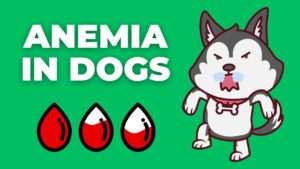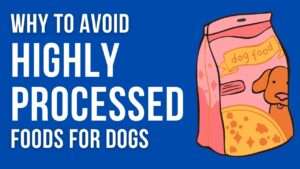Are you a dog lover who’s curious about adding chia seeds to your furry friend’s diet? Chia seeds have gained popularity among health-conscious humans for their nutritional benefits, but what about our canine companions? In this comprehensive guide, we’ll delve into the question: Can dogs eat chia seeds? Let’s explore everything you need to know to keep your pup healthy and happy.
Contents Overview
Unraveling the Mystery
Chia seeds have become a staple in many human diets due to their high nutrient content and potential health benefits. But when it comes to our pets, especially dogs, it’s essential to understand if these tiny seeds are safe for consumption. Can dogs enjoy the same benefits from chia seeds as humans, or should they steer clear? Let’s uncover the truth.
What are Chia Seeds?
- Chia seeds are tiny, nutrient-rich seeds derived from the Salvia hispanica plant, native to Mexico.
- They are packed with essential nutrients, including omega-3 fatty acids, fiber, protein, and various vitamins and minerals.
- Chia seeds have gained popularity for their potential health benefits, such as improved heart health, weight management, and digestive health.
Nutritional Value of Chia Seeds
- High in Omega-3 Fatty Acids: Chia seeds are one of the richest plant sources of omega-3 fatty acids, which are beneficial for heart health and inflammation reduction.
- Rich in Fiber: Fiber is crucial for digestive health, and chia seeds are loaded with soluble and insoluble fiber, aiding in digestion and promoting regular bowel movements.
- Protein Content: Despite their small size, chia seeds contain a decent amount of protein, which is essential for muscle growth and repair.
Are Chia Seeds Safe for Dogs?
Now, let’s address the burning question: Can dogs safely consume chia seeds?
Yes, in Moderation: Chia seeds are generally safe for dogs when given in moderation. However, it’s crucial to consider your dog’s individual dietary needs and any existing health conditions.
Potential Benefits for Dogs
Chia seeds have gained popularity as a superfood for humans, but can they offer similar benefits for our canine companions? Let’s delve into the potential benefits of chia seeds for dogs:
- Omega-3 Fatty Acids: Chia seeds are rich in omega-3 fatty acids, particularly alpha-linolenic acid (ALA). These essential fatty acids play a crucial role in supporting your dog’s overall health, including skin and coat health, joint function, and cognitive function.
- Digestive Health: Chia seeds are an excellent source of dietary fiber. The soluble fiber in chia seeds can help regulate digestion and promote healthy bowel movements in dogs. This can be particularly beneficial for dogs with digestive issues like constipation or diarrhea.
- Weight Management: The high fiber content in chia seeds can also help your dog feel fuller for longer periods, which may aid in weight management by reducing the tendency to overeat.
- Hydration: When soaked in water, chia seeds develop a gel-like consistency. This gel can help retain moisture, making it a useful addition to your dog’s diet, especially for dogs prone to dehydration or those needing extra hydration during hot weather or physical activity.
- Antioxidants: Chia seeds contain antioxidants such as chlorogenic acid, caffeic acid, and quercetin. These compounds help neutralize harmful free radicals in your dog’s body, potentially reducing the risk of chronic diseases and supporting overall immune function.
- Nutrient Boost: Chia seeds are packed with essential nutrients, including calcium, phosphorus, magnesium, and manganese. These minerals are vital for maintaining strong bones, teeth, and overall metabolic function in dogs.
- Energy Source: Chia seeds are a concentrated source of energy, thanks to their high content of healthy fats, protein, and carbohydrates. Adding chia seeds to your dog’s diet can provide a natural energy boost, making them an ideal option for active dogs or working breeds.
- Anti-Inflammatory Properties: The omega-3 fatty acids found in chia seeds have anti-inflammatory properties, which may help alleviate symptoms associated with conditions like arthritis, allergies, and inflammatory bowel disease in dogs.
Guidelines for Feeding Chia Seeds to Dogs
While chia seeds offer numerous health benefits, it’s important to introduce them to your dog’s diet in a safe and controlled manner. Here are some guidelines to follow:
- Consult Your Vet: Before adding any new food to your dog’s diet, consult your veterinarian. They can provide personalized advice based on your dog’s age, weight, health status, and dietary needs.
- Start Slowly: Introduce chia seeds gradually to prevent digestive upset. Begin with small amounts and observe how your dog reacts before increasing the serving size.
- Choose Quality Seeds: Opt for organic, raw chia seeds without any added flavors or preservatives. Ensure they are fresh and stored properly to maintain their nutritional integrity.
- Preparation: To enhance digestibility and nutrient absorption, consider soaking chia seeds in water before feeding them to your dog. This helps soften the seeds and prevents them from expanding in your dog’s stomach, reducing the risk of gastrointestinal issues.
- Serve Appropriately: Sprinkle chia seeds over your dog’s regular food or mix them into homemade treats. Avoid feeding them in excessive amounts, as they are calorie-dense and could contribute to weight gain if consumed in large quantities.
- Monitor Hydration: Chia seeds absorb water and can expand in your dog’s stomach, so it’s essential to ensure your dog has access to plenty of fresh water when consuming them. This helps prevent dehydration and ensures proper digestion.
- Observe for Allergic Reactions: While rare, some dogs may be allergic to chia seeds. Watch for signs of adverse reactions such as itching, vomiting, diarrhea, or difficulty breathing. If you notice any symptoms, discontinue feeding chia seeds and consult your vet.
Potential Risks and Considerations
Despite their nutritional value, chia seeds may pose certain risks to dogs:
- Choking Hazard: Chia seeds can swell and form a gel-like substance when mixed with water. In their dry form, they could pose a choking hazard, especially for smaller breeds.
- High-Fat Content: While omega-3s are beneficial, chia seeds are also high in fat. Excessive fat intake can lead to pancreatitis in dogs, a painful and potentially life-threatening condition.
- Digestive Issues: Introducing chia seeds suddenly into a dog’s diet may cause gastrointestinal upset, including diarrhea or vomiting.
Bottom Line
In conclusion, chia seeds can be a nutritious addition to your dog’s diet when fed in moderation and with caution. While they offer several health benefits, it’s crucial to introduce them gradually and monitor your dog for any adverse reactions. As always, consulting with your veterinarian before making any dietary changes for your furry friend is the best course of action. With proper care and consideration, you can enhance your dog’s well-being and keep their tails wagging for years to come.



































+ There are no comments
Add yours